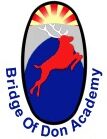Drama is a subject which offers exploration of a wide range of topics from real life issues to fantasy, developing skills for learning life and work such as creativity, problem solving, confidence, emotional intelligence and co-operation. The course covers all aspects of theatre including devising, acting from a script, script writing, directing and technical theatre (Lighting, sound, costume, make-up and hair, props and set).
S2 Drama
As our pupils do not receive Drama in S1 it is important to build knowledge and understanding of the basic theatre skills and terminology. Pupils comes to Drama once a week and are expected to take part in a range of practical and written activities. Our units of work in S2 are as follows:
- Mime and Movement: looking at the fundamentals of mime performance we create slapstick comedy whilst working on movement terminology. The pupils are assessed on performance and their ability to evaluate themselves and others.
- Voice: Pupils are now asked to develop their ability to create a character building voice into their performance. Pupils use characterisation techniques and explore conventions which can help build storyline and understanding of character background.
- Production Skills and Storytelling: After a series of workshops on lighting, sound, costume, make-up and hair, props and set our pupils use their new skills to help create tension and mood and atmosphere in a story of their choosing. Pupils will continue to develop their acting skills further for this particular genre of storytelling.
- Script work: Assigning the pupils a character each to develop from clues in the script, pupils work in groups to develop their acting skills in a workshop environment.
At the end of every unit pupils are expected to complete a written assessment to test knowledge and understanding as well as evaluate their own work and that of others in class.
S3 Drama
In S3 pupils attend Drama twice a week after choosing their subjects at the end of S2. They experiment with a range of form, genre, structure and style of performance, broadening their understanding of various ways to present a drama. Pupils will be asked to keep rehearsal logs of their learning, monitoring the development of their own abilities. Pupils will achieve this through the following Units:
- Physical theatre
- Stage Fighting
- Monologue and Production Unit
- Page to Stage acting workshops.
Within all units of work, pupils will be expected to perform in a variety of ways, demonstrating the ability to portray a number of different characters, building their repertoire. They will all be expected to write an evaluate assessment at the end of each unit, which should be embedded with the terminology they have learned from the start of S2.
